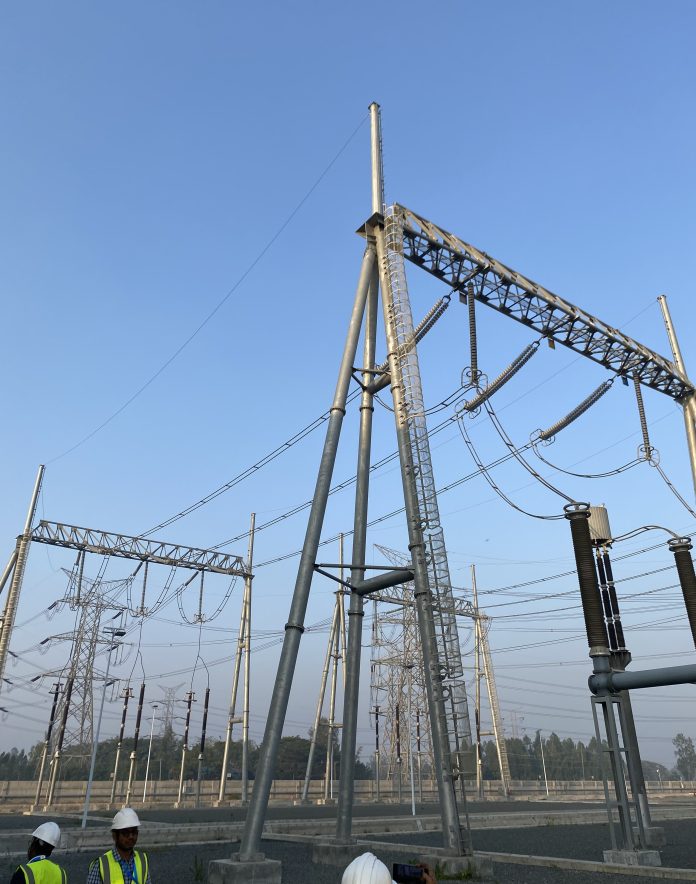The Chinese Enterprises Association in Bangladesh has expressed deep concern over the government’s recent move to renegotiate power sector tariffs, calling it a “disaster for investors.”
Speaking at the 3rd Bangladesh-China Renewable Energy Forum held in Dhaka on Monday, the association’s president Han Kun said such abrupt changes signal unpredictability and discourage future foreign investment.
“When we made the investment and the plant was ready for commercial operation, we were suddenly informed that tariff structures were being changed,” Han Kun said. “Changing terms and conditions after investment is a serious blow to investor confidence.”
The dialogue, titled “Recent Challenges for Chinese Overseas Investment in Bangladesh’s Renewable Energy Sector: Way Forward,” was organised by the Centre for Policy Dialogue (CPD).
Han highlighted that major power projects such as the Patuakhali 1,320 MW plant, Barishal coal-fired power plant, and the SS power plant have received notices to renegotiate existing Power Purchase Agreements (PPAs).
According to him, these decisions send a signal of unpredictability to global investors, which could drive up financing costs, delay infrastructure projects, and hamper the energy transition.
Citing specific examples, he alleged that $1.45 million was deducted from payments to a Chinese-funded power plant under the pretext of delayed performance bond submission—despite no such penalty clause in the PPA.
He added that the Barishal plant is facing arbitrary deductions, while the SS power plant is suffering from over $200 million in delayed payments.
Han also questioned the feasibility of Bangladesh’s renewable energy targets—20% by 2030 and 30% by 2040—given that only 3% of current electricity comes from grid-tied renewable sources now.
The CPD, in its presentation, pointed to a range of systemic challenges deterring foreign investment in the renewable sector, including administrative hurdles, land development issues, and complex project approval procedures.
“Partial digitalisation, inconsistent agency platforms, and lengthy licensing requirements are among the top deterrents,” said CPD Research Director Khondaker Golam Moazzem, who co-presented the keynote with Abrar Ahammed Bhuiyan. He noted that overlapping approvals, strict documentation, and limited English-language support add to investor frustration.
Bangladesh Energy Regulatory Commission Chairman Jalal Ahmed, along with representatives from the Bangladesh Investment Development Authority (BIDA), SREDA, and the Bangladesh Power Development Board, attended the event.
Speakers from Chinese and local renewable energy firms echoed Han Kun’s concerns. Wang Weiquan of the Chinese Renewable Energy Industries Association shared how China’s stable tariff structures and national policies helped attract investment. Md Shahidur Rahman, country manager of Jinko Solar Bangladesh, noted that unlike India or Brazil, Bangladesh does not facilitate land access for solar projects—another major obstacle.
Raising further concerns, SK Md Ruhul Amin of Chint Solar (Bangladesh) said 37 solar projects had their Letters of Intent cancelled over corruption allegations. “We received government approvals, acquired land, and transferred funds—but there is no clarity on why the projects were scrapped,” he said.
Masudur Rahim, CEO of Omera Renewable Energy Ltd, stressed the need for infrastructure improvement and streamlined repatriation of dividends to attract Chinese investors. He also criticized the absence of payment guarantees and inconsistent tendering processes.
“The current environment is not encouraging for international investment in renewable energy,” Rahim concluded.

